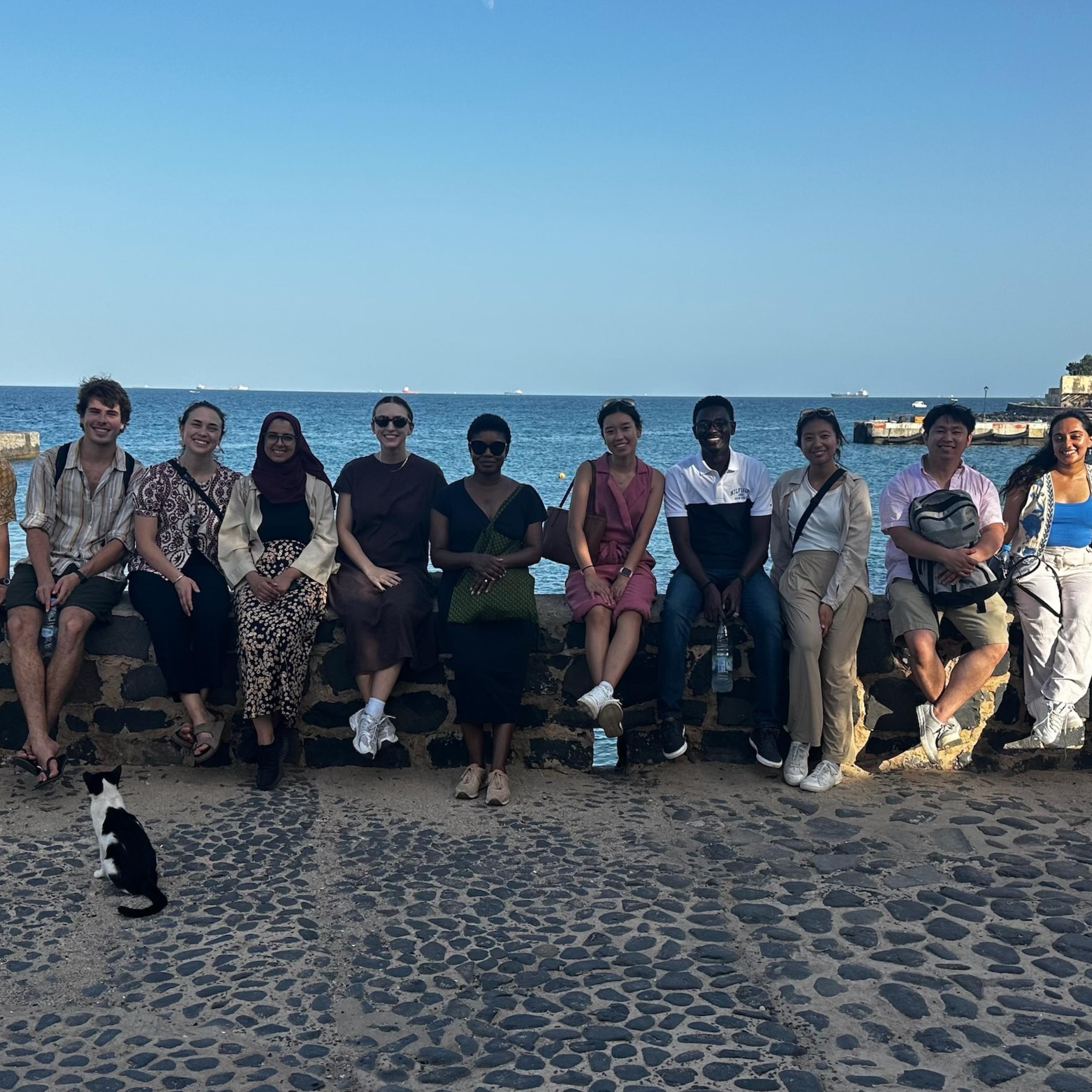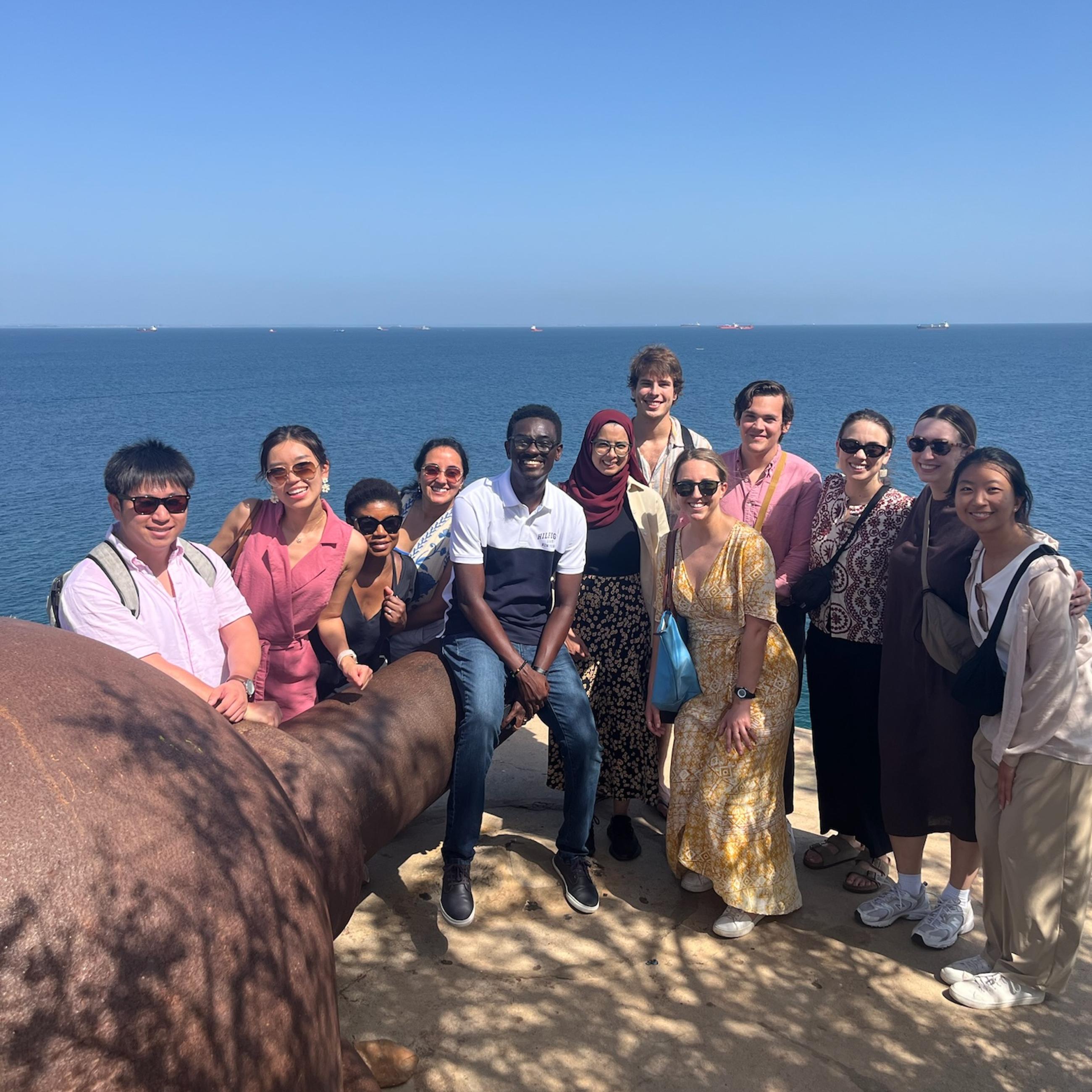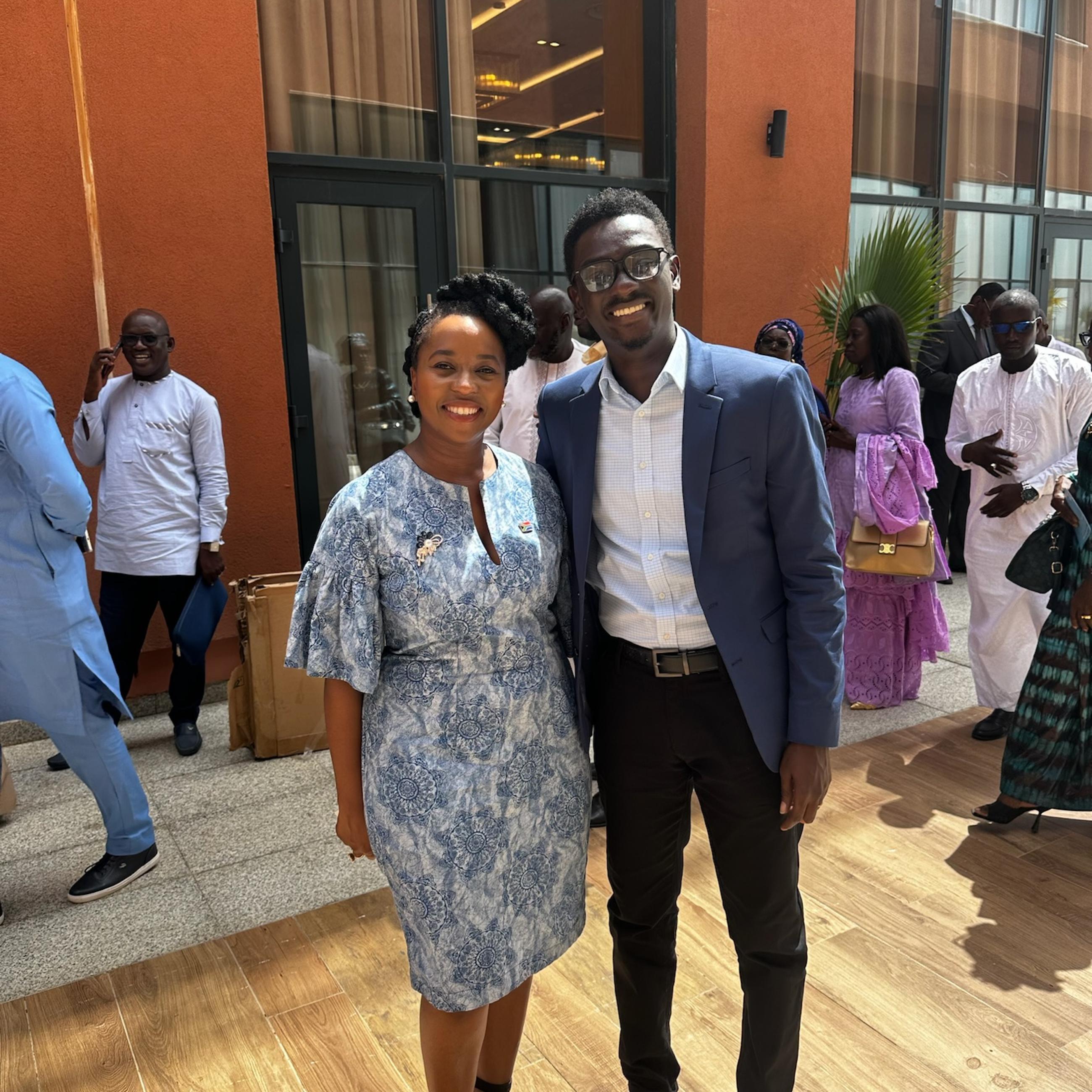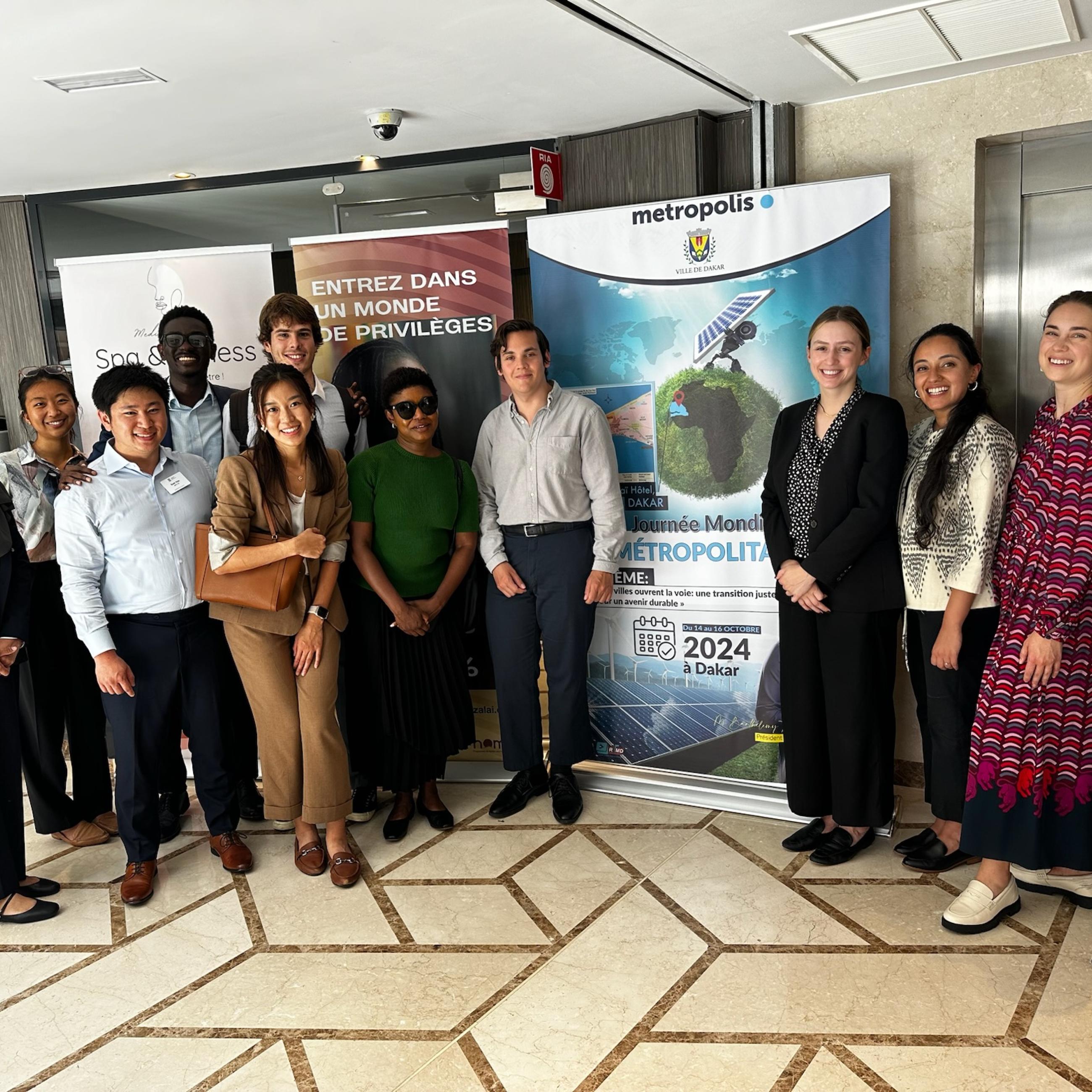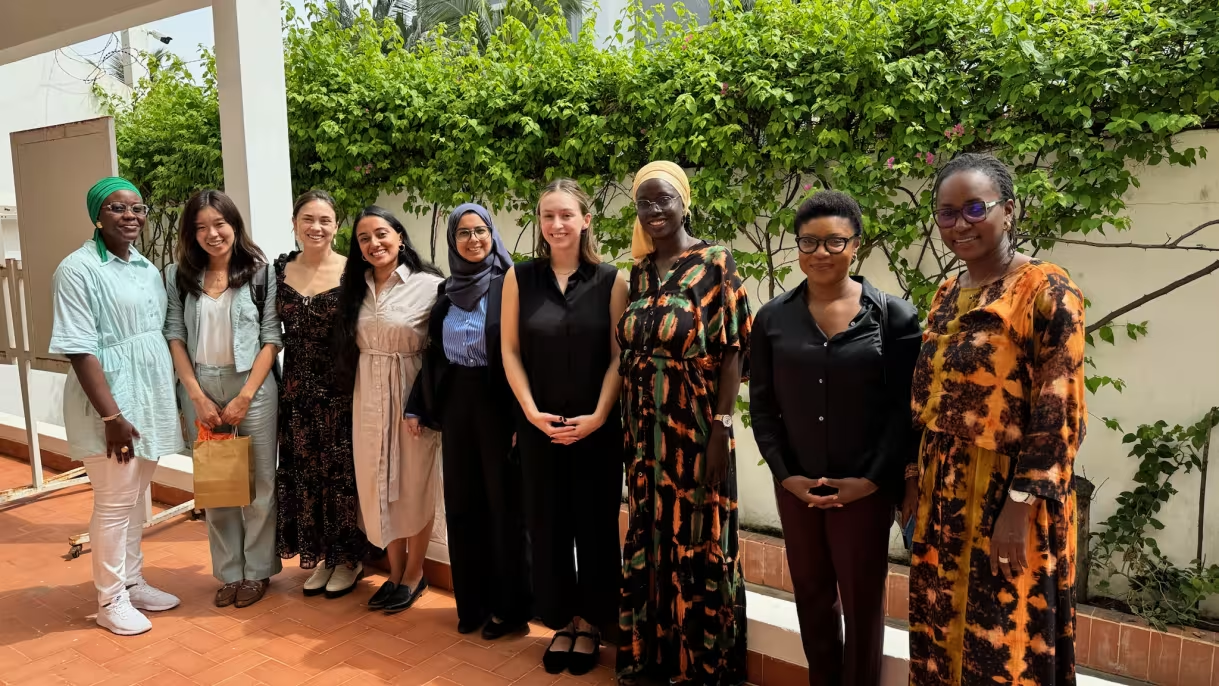

Princeton SPIA Policy Workshop Tackles Climate Finance Challenges in Dakar
From the classroom to the Prime Minister’s office, MPA2 students delve into Senegal’s climate policy landscape to develop policy recommendations tailored to local realities.
Context is key. That’s one of Devanne Béda-Geuder’s guiding principles in “Strengthening Urban Climate Adaptation and Finance in Dakar, Senegal,” a policy workshop she’s leading this semester at the Princeton School of Public and International Affairs (Princeton SPIA).
“It’s really important to think about climate change, climate policy, and climate finance from the perspective of a developing country,” said Béda-Geuder, an urban and development scholar and practitioner with 20 years of experience working at the intersection of development, governance, and urban studies in African cities.
A lecturer and associate research scholar at Princeton SPIA, Béda-Geuder led a 2022 policy workshop on urban policy in Accra, Ghana, another coastal city in Sub-Saharan Africa grappling with climate impacts. A group of students in her Urbanization and Development course initially proposed the idea for this year’s workshop, and together they fleshed out the location and scope.
Situated at the westernmost point of Africa, Senegal is particularly vulnerable to climate change, facing rising sea levels, coastal erosion, urban flooding, and extreme weather events. Rapid urbanization in the capital, Dakar — home to nearly 4 million people, many in informal settlements — has compounded these vulnerabilities.
“As the scale of climate disasters continues to escalate, so does the cost of climate mitigation and adaptation,” Béda-Geuder said. A recent World Bank Report estimates that Senegal will need $1.36 billion per year for climate action until 2030 and $530 million annually from 2031 to 2050.
“Senegal is a lower-income country with significant debt,” Béda-Geuder said. “That constrains its ability to invest in a green transition and to build the type of infrastructure that would protect its own citizenry. That’s one of the reasons why climate finance is critical.”
Classroom to In-Country Learning
A required component of the Master in Public Affairs (MPA) program, policy workshops provide second-year students with the opportunity to apply skills learned to analyze complex and challenging real-world policy issues.
This semester, Béda-Geuder and a team of 12 MPA2 students are working with the African Climate Foundation (ACF) to tackle urban climate adaptation and finance — two of the most pressing challenges facing Dakar and other Senegalese cities.
“There are a lot of international actors present in these spaces, but I felt it was really important to collaborate with an African institution,” Béda-Geuder said. “There needs to be a local champion that understands local and national needs rather than global priorities, which are currently misaligned.” ACF’s strategic partnerships bring together priority actors from the government, private sector, philanthropic world, and civil society to strengthen the climate agenda in Senegal.
Through this partnership, the Princeton SPIA policy workshop team offers research and analysis to support ACF’s strategic efforts in Senegal. Their goal is to produce comprehensive policy recommendations aligned with the country’s broader climate goals, specifically energy transitions and the impacts of climate change, particularly sea-level rise and coastal erosion.
The workshop is divided into three parts: classroom learning, fieldwork, and synthesis.
The first six weeks of the course prepared students to engage with key stakeholders during a weeklong trip to Senegal over fall break. Before ever setting foot in Africa, the students had virtually met many of these stakeholders, including the ACF’s country director for Senegal, academics from a local Senegalese university, and key climate actors and policy experts from organizations like C40 Cities, Climate Policy Initiative, and the World Bank.
“Each lecture provided essential background and context to help us understand the main issues on the ground,” said Jing Xie, a workshop participant. “It was a great combination of theory and practice that helped us better understand the real-world situation.”
This firm foundation helped students during their trip to Senegal, where they met with more than 20 stakeholders, including international organizations like the African Development Bank and Green Global Growth Institution, the city government, and the Ministry of Environment. The group even had the opportunity to meet with the technical advisor to the Prime Minister for Urban Planning and Regional Development.
“It was inspiring to experience firsthand how African cities are working toward building climate-resilient communities, ensuring sustainable urban development in the face of global challenges,” said Ferdinand Quayson, another workshop participant. “As a Ghanaian, my experience in Dakar has deepened my belief in the power of collaboration and innovation across the continent.”
Even their cultural activities on the trip offered valuable lessons and significant insights. One of those activities was a visit to Gorée Island, a United Nations Educational, Scientific, and Cultural Organization heritage site, that has suffered coastal erosion. “It was quite impactful to actually see those changes and the damage that climate change has caused in the local community,” Xie stated.
Informed by both qualitative and quantitative research and their interviews with stakeholders, the students are now synthesizing policy recommendations related to climate adaptation, mitigation, and finance. They will incorporate feedback from ACF and other stakeholders before finalizing their report and presenting it in January.
“The workshop is an opportunity to think through a real-world policy challenge in a way that is really useful,” Béda-Geuder said. “It helps prepare the students for the type of work that they will be doing when they leave the master’s program.”







